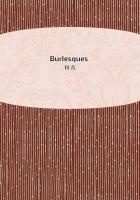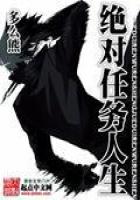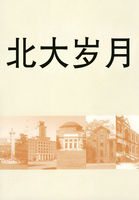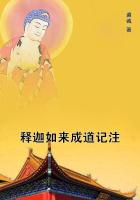Had the Government introduced the innovations slowly and cautiously, respecting as far as possible all outward forms, it might have effected much without producing a religious panic; but, instead of acting circumspectly as the occasion demanded, it ran full-tilt against the ancient prejudices and superstitious fears, and drove the people into open resistance. When the art of printing was introduced, it became necessary to choose the best texts of the Liturgy, Psalter, and other religious books, and on examination it was found that, through the ignorance and carelessness of copyists, numerous errors had crept into the manuscripts in use. This discovery led to further investigation, which showed that certain irregularities had likewise crept into the ceremonial. The chief of the clerical errors lay in the orthography of the word "Jesus," and the chief irregularity in the ceremonial regarded the position of the fingers when making the sign of the cross.
To correct these errors the celebrated Nikon, who was Patriarch in the time of Tsar Alexis, father of Peter the Great, ordered all the old liturgical books and the old Icons to be called in, and new ones to be distributed; but the clergy and the people resisted.
Believing these "Nikonian novelties" to be heretical, they clung to their old Icons, their old missals and their old religious customs as the sole anchors of safety which could save the Faithful from drifting to perdition. In vain the Patriarch assured the people that the change was a return to the ancient forms still preserved in Greece and Constantinople. "The Greek Church," it was replied, "is no longer free from heresy. Orthodoxy has become many-coloured from the violence of the Turkish Mahomet; and the Greeks, under the sons of Hagar, have fallen away from the ancient traditions."
An anathema, formally pronounced by an Ecclesiastical Council against these Nonconformists, had no more effect than the admonitions of the Patriarch. They persevered in their obstinacy, and refused to believe that the blessed saints and holy martyrs who had used the ancient forms had not prayed and crossed themselves aright. "Not those holy men of old, but the present Patriarch and his counsellors must be heretics." "Woe to us! Woe to us!" cried the monks of Solovetsk when they received the new Liturgies. "What have you done with the Son of God? Give him back to us! You have changed Isus [the old Russian form of Jesus] into Iisus! It is fearful not only to commit such a sin, but even to think of it!"
And the sturdy monks shut their gates, and defied Patriarch, Council, and Tsar for seven long years, till the monastery was taken by an armed force.
The decree of excommunication pronounced by the Ecclesiastical Council placed the Nonconformists beyond the pale of the Church, and the civil power undertook the task of persecuting them.
Persecution had of course merely the effect of confirming the victims in their belief that the Church and the Tsar had become heretical. Thousands fled across the frontier and settled in the neighbouring countries--Poland, Russia, Sweden, Austria, Turkey, the Caucasus, and Siberia. Others concealed themselves in the northern forests and the densely wooded region near the Polish frontier, where they lived by agriculture or fishing, and prayed, crossed themselves and buried their dead according to the customs of their forefathers. The northern forests were their favourite place of refuge. Hither flocked many of those who wished to keep themselves pure and undefiled. Here the more learned men among the Nonconformists--well acquainted with Holy Writ, with fragmentary translations from the Greek Fathers, and with the more important decisions of the early Ecumenical Councils--wrote polemical and edifying works for the confounding of heretics and the confirming of true believers. Hence were sent out in all directions zealous missionaries, in the guise of traders, peddlers, and labourers, to sow what they called the living seed, and what the official Church termed "Satan's tares." When the Government agents discovered these retreats, the inmates generally fled from the "ravenous wolves"; but on more than one occasion a large number of fanatical men and women, shutting themselves up, set fire to their houses, and voluntarily perished in the flames. In Paleostrofski Monastery, for instance, in the year 1687, no less than 2,700
fanatics gained the crown of martyrdom in this way; and many similar instances are on record. As in all periods of religious panic, the Apocalypse was carefully studied, and the Millennial ideas rapidly spread. The signs of the time were plain: Satan was being let loose for a little season. Men anxiously looked for the reappearance of Antichrist--and Antichrist appeared!
A list of well-authenticated cases is given by Nilski, "Semeinaya zhizn v russkom Raskole," St. Petersburg, 1869; part I., pp. 55-57.
The number of these self-immolators certainly amounted to many thousands.
The man in whom the people recognised the incarnate spirit of evil was no other than Peter the Great.
From the Nonconformist point of view, Peter had very strong claims to be considered Antichrist. He had none of the staid, pious demeanour of the old Tsars, and showed no respect for many things which were venerated by the people. He ate, drank, and habitually associated with heretics, spoke their language, wore their costume, chose from among them his most intimate friends, and favoured them more than his own people. Imagine the horror and commotion which would be produced among pious Catholics if the Pope should some day appear in the costume of the Grand Turk, and should choose Pashas as his chief counsellors! The horror which Peter's conduct produced among a large section of his subjects was not less great.















